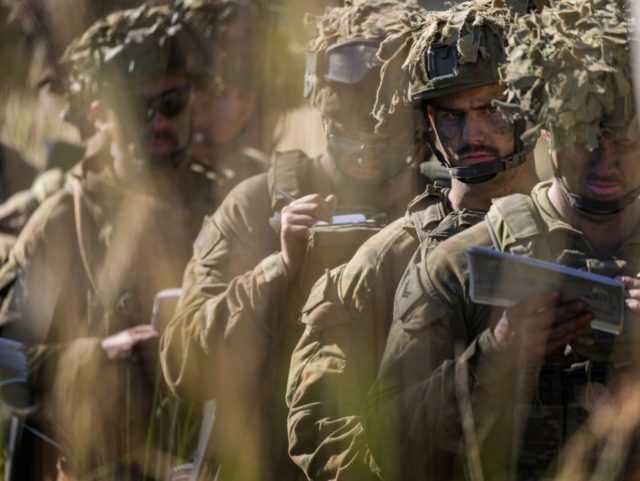Australian soldiers working with their U.S. comrades Down Under have been told to stop using slang words in the interests of not confusing their allies.
RAAF Group Captain Stewart Dowrie told Ten Daily the use of colorful – and often ribald – Aussie colloquialisms could result in a communication breakdown, which might deliver fatal outcomes on the battlefield.
“We have lost-in-translation moments more than you would realise,” Group Capt Dowrie said. “The time to figure that out is not on the battlefield when the bullets are flying.”
Seventeen-hundred U.S. troops arrived in the northern city of Darwin in the past two weeks as part of a joint training rotation, with that number expected to grow to 2500.
Australian and U.S. troops are now due to practise high-end war fighting and disaster response activities as well as advanced jungle survival techniques. See below:
Group Capt. Dowrie explained a phrase or saying that Australians may not give a second thought about could cause major confusion for someone from another country.
“The danger in the Australia-U.S. relationship is that we actually assume we mean the same thing,” Group Capt Dowrie said. “In military training scenarios we use very prescriptive means of communication.”
The results of a study released by language app Babbel last year proved just how confusing Aussie slang could be to others.
The app polled people from the U.S., the UK, Canada, France, Sweden, Germany, Spain, the Philippines, Poland and Russia, seeking their interpretations of classic Australian slang.
According to News.com, respondents deciphered the easy stuff, like “g’day”, but other words and phrases left them baffled and perhaps even a little frightened.
Some of the tougher Aussie phrases included:
SHE’LL BE RIGHT
UK’s guess: “The wife is always correct”
Russia’s guess: “She will be back in a minute”
Actual meaning: Everything will be fine
FLAT OUT LIKE A LIZARD DRINKING
U.S.: “Absolutely no idea”
France: “To have a flat tyre”
Germany: “Spilling drinks everywhere”
Actual meaning: To be very busy
CARRY ON LIKE A PORK CHOP
UK: “A fat person trying to finish a task”
U.S.: “To talk excessively”
Actual meaning: To act in an overly dramatic manner
YOU HUM DINGER
Sweden: “You fool”
Philippines: “You’re boring”
Poland: “You smell bad”
Actual meaning: A remarkable person or thing
SHE’S A BLOODY RIPPER
France: “She just wants your money”
U.S.: “A big storm”
Actual meaning: Something awesome
CRACK THE SH*TS
U.S.: “To get nervous”
Germany: “To clear out quickly”
Actual meaning: To get angry or annoyed
Despite the wariness of Australia’s current leaders, history shows that Aussie troops have been successfully fighting alongside their American cousins for over a century.
Australian troops first went into battle alongside GIs in World War One at the battle of Hamel. That moment in July 1918 was the first time in the war that American troops participated in an offensive action under non-American command.
Ten American companies joined with their Australian comrades under Australian command in that northern France battle, although six were recalled before the battle.
Since then the two countries have gone into harm’s way together in all theatres of battle in World War Two on land, air and sea as well as Korea, Vietnam, Iraq, Syria and Afghanistan.
There have also been countless peace keeping missions where Australians and U.S. forces have successfully worked together and delivered excellent outcomes – despite the perceived language barriers.
And that’s Fair Dinkum.
Follow Simon Kent on Twitter: Follow @SunSimonKent or e-mail to: skent@breitbart.com

COMMENTS
Please let us know if you're having issues with commenting.